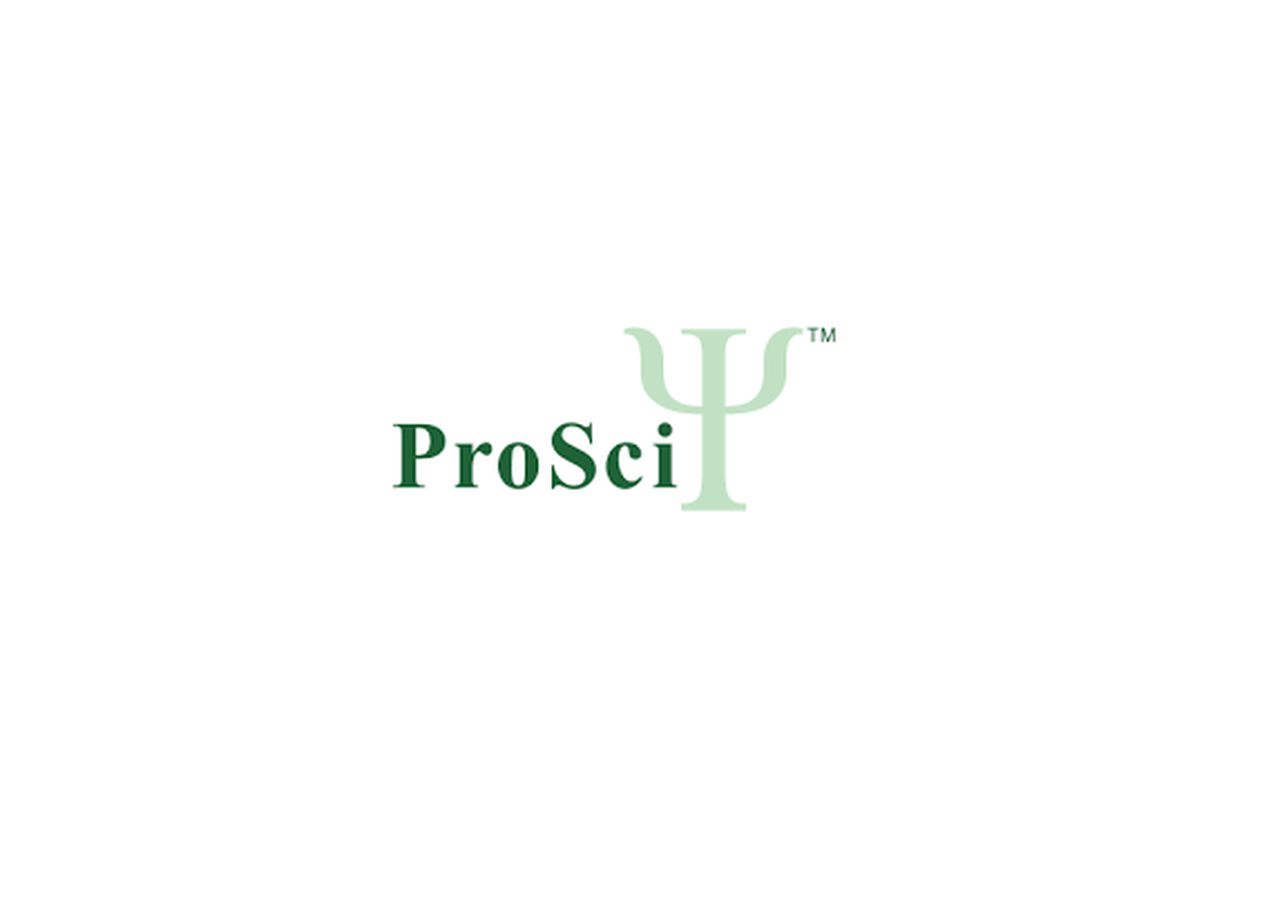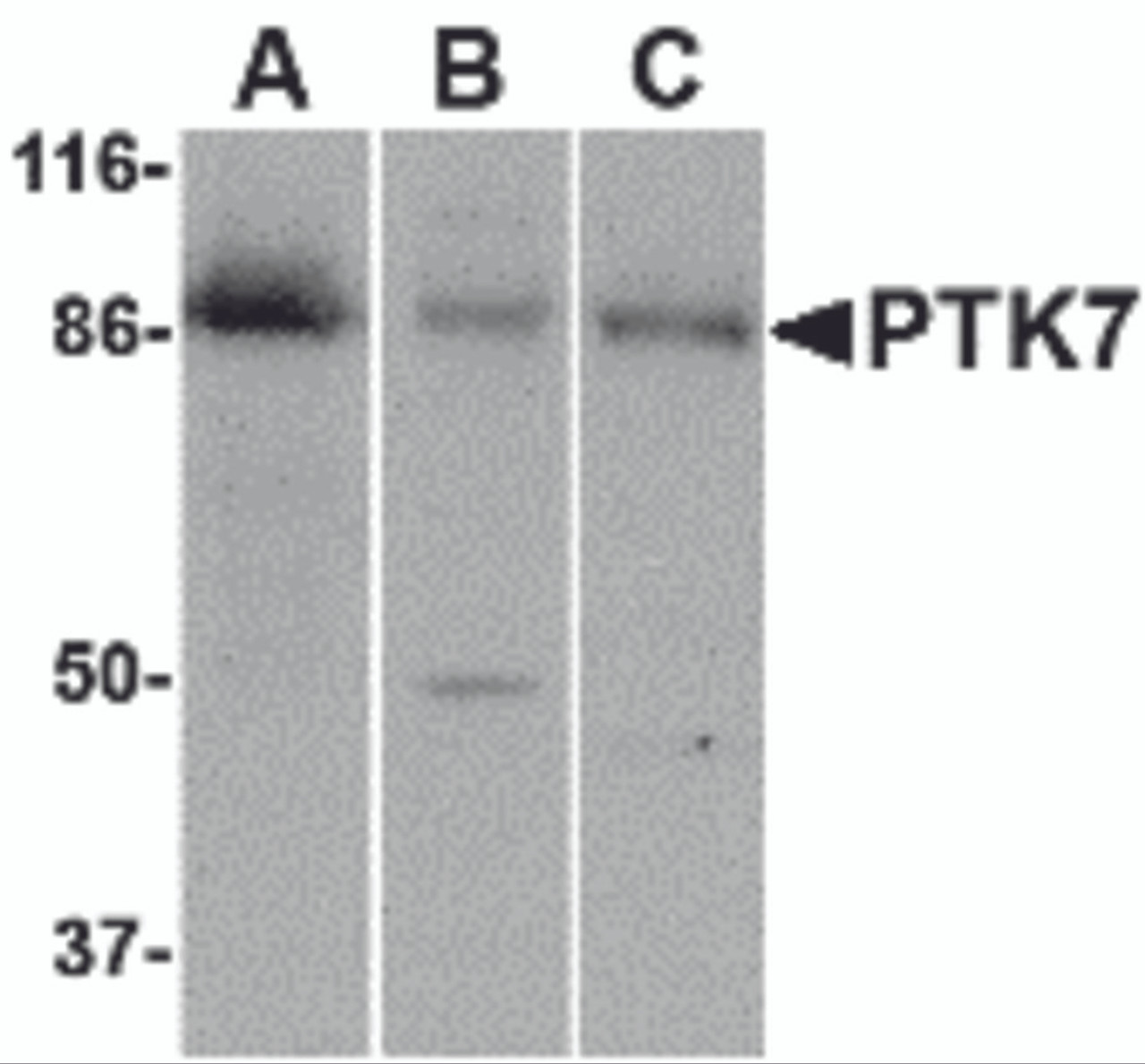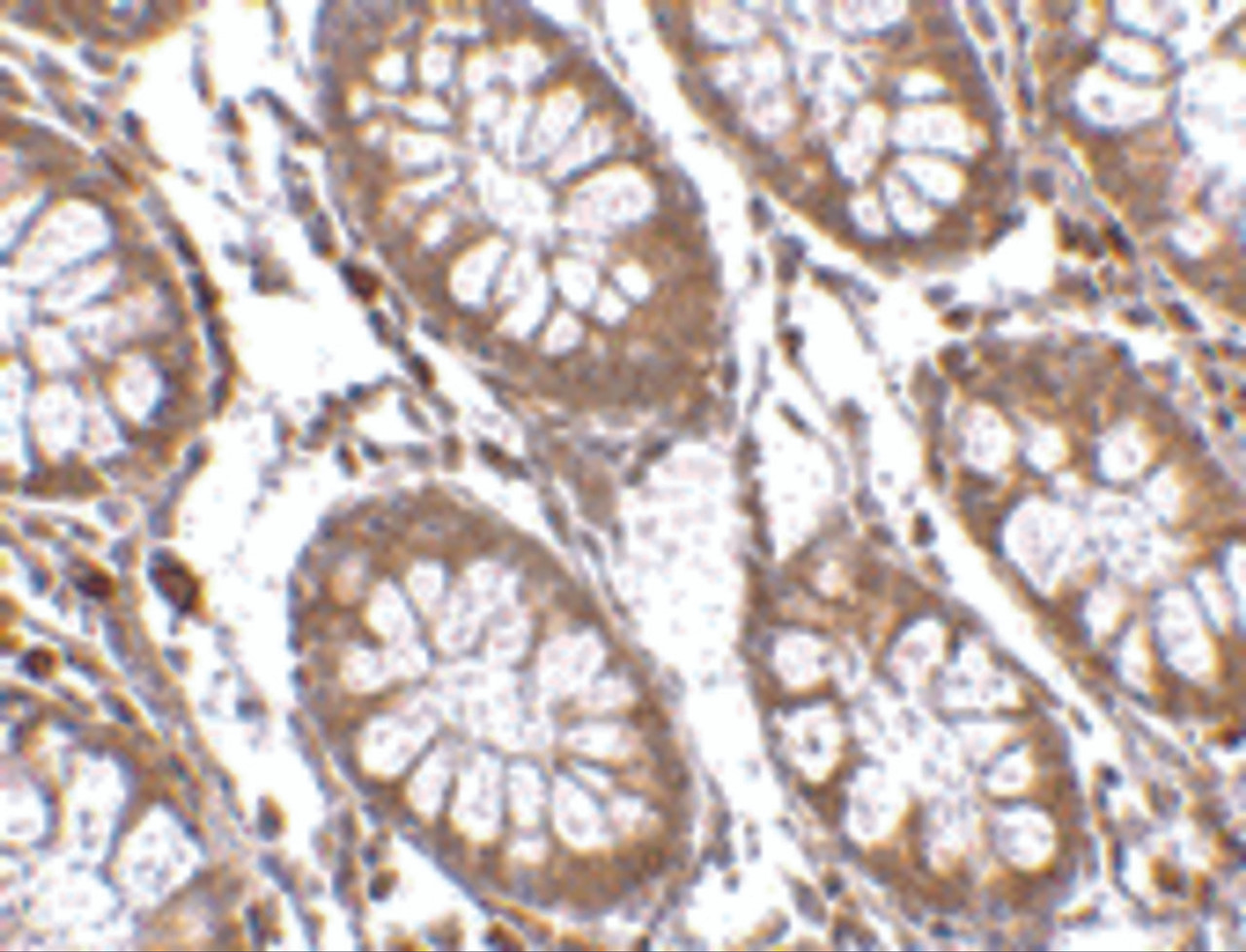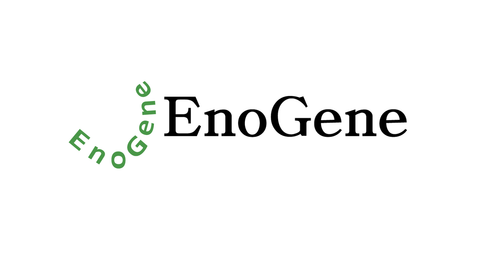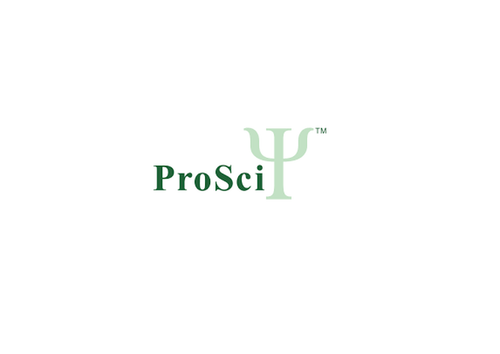Product Description
PTK7 Antibody | 4297 | ProSci
Host: Rabbit
Reactivity: Human, Mouse, Rat
Homology: Predicted species reactivity based on immunogen sequence: Chicken: (84%)
Immunogen: PTK7 antibody was raised against a 18 amino acid synthetic peptide from near the carboxy terminus of human PTK7.
The immunogen is located within amino acids 880 - 930 of PTK7.
Research Area: Homeostasis
Tested Application: E, WB, IHC-P, IF
Application: PTK7 antibody can be used for detection of PTK7 by Western blot at 1 μg/mL. Antibody can also be used for immunohistochemistry starting at 2.5 μg/mL. For immunofluorescence start at 20 μg/mL.
Antibody validated: Western Blot in human, mouse, and rat samples; Immunohistochemistry in human samples and Immunofluorescence in human samples. All other applications and species not yet tested.
Specificiy: N/A
Positive Control 1: Cat. No. 1320 - Human Colon Tissue Lysate
Positive Control 2: N/A
Positive Control 3: N/A
Positive Control 4: N/A
Positive Control 5: N/A
Positive Control 6: N/A
Molecular Weight: N/A
Validation: N/A
Isoform: N/A
Purification: PTK7 Antibody is affinity chromatography purified via peptide column.
Clonality: Polyclonal
Clone: N/A
Isotype: IgG
Conjugate: Unconjugated
Physical State: Liquid
Buffer: PTK7 Antibody is supplied in PBS containing 0.02% sodium azide.
Concentration: 1 mg/mL
Storage Condition: PTK7 antibody can be stored at 4˚C for three months and -20˚C, stable for up to one year. As with all antibodies care should be taken to avoid repeated freeze thaw cycles. Antibodies should not be exposed to prolonged high temperatures.
Alternate Name: PTK7 Antibody: CCK4, CCK-4, CCK4, Inactive tyrosine-protein kinase 7, Colon carcinoma kinase 4
User Note: Optimal dilutions for each application to be determined by the researcher.
BACKGROUND: PTK7 Antibody: Protein-tyrosine kinases (PTKs) play important roles in regulating cell proliferation and differentiation during development. One member of the PTK family, PTK7, has been suggested to regulate the planar cell polarity (PCP) pathway in vertebrates and may play a role in neural convergent extension and neural tube closure. PTK7 has also been implicated in the development of cancer. Loss of PTK7 expression was seen in several melanoma cell lines and biopsies. Conversely, high-throughput analysis of acute myeloid leukemia samples showed an increased level of PTK7 expression compared to normal bone marrow and purified CD34+ cells. Multiple isoforms of PTK7 are known to exist.
 Euro
Euro
 USD
USD
 British Pound
British Pound
 NULL
NULL

